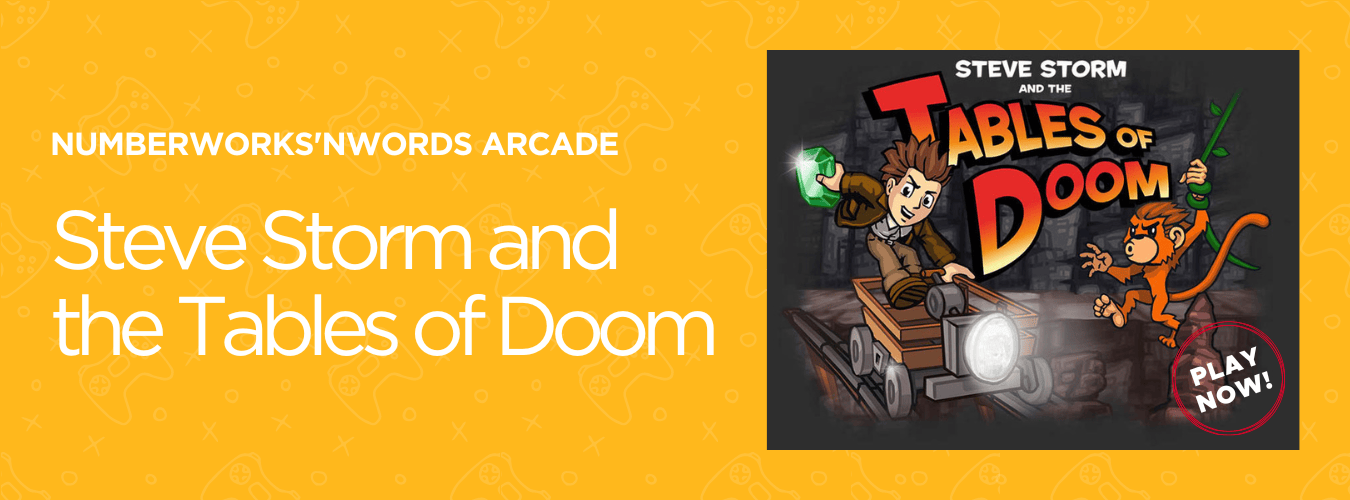Practicing Numeracy at Home

In the ever-evolving landscape of education, parents play a pivotal role in shaping their children's academic journey. One of the key pillars of a well-rounded education is numeracy—the ability to understand and work with numbers effectively.
In this blog, we will delve deeper into the significance of practising numeracy at home and how the NumberWorks'nWords free maths games arcade can transform this learning process into a fun and engaging adventure for kids.
Understanding Numeracy Skills
Before delving into the practical aspects of maths, let's take a moment to further understand what numeracy entails.
Numeracy goes beyond mere arithmetic skills; it encompasses a broader range of mathematical abilities, including problem-solving, critical thinking, and solving problems and an understanding of how it applies to real-world situations.
This skill set enables one to approach problems methodically, breaking them down into manageable components and devising effective strategies for resolution. Numeracy cultivates a mindset that fosters logical reasoning and analytical thinking, invaluable skills not only in the academic realm but also in a professional and personal sense.
Numeracy is linked to critical thinking, encouraging individuals to question, evaluate, and draw meaningful conclusions from numerical data. It equips individuals with the capacity to discern patterns, make connections, and extrapolate insights, fostering a deeper understanding of mathematical concepts.
Creating a Numeracy-Rich Environment
Establishing a numeracy-rich environment is fundamental to fostering a positive and supportive atmosphere that promotes the development of numeracy skills. This environment encourages individuals to engage with and apply mathematical concepts in various contexts.
Here are key strategies for creating a numeracy-rich environment:
A. Setting up a Dedicated Study Space
Creating a dedicated learning environment at home is crucial for nurturing a child's numeracy skills. Designate a space where your child can focus on numeracy activities without distractions. This dedicated space will serve as a hub for your child's learning and will help establish a routine that emphasises the importance of numeracy.
B. Infusing Numeracy into Everyday Activities
The integration of numeracy into daily life is a powerful way to develop and reinforce mathematical concepts. From grocery shopping to cooking to playing cards, see opportunities to integrate numeracy and maths into your routine.
Counting, measuring, and budgeting are excellent examples of practical applications of numeracy that make learning a seamless part of everyday life.
C. Leveraging Technology with NumberWorks'nWords Arcade
Integrating educational technology can bring an element of enjoyment to children's maths learning. The NumberWorks'nWords Arcade provides a variety of free maths games crafted to captivate and educate kids in an interactive and entertaining manner.
Through the infusion of technology into the learning process, parents can cultivate a dynamic approach to maths and numeracy education. This not only enhances a child's understanding of maths concepts but also makes the learning experience more engaging and enjoyable.
Fun and Engaging Everyday Activities
A. Games and Puzzles
Turn learning into play with engaging games and puzzles that stimulate mathematical thinking. Incorporate these activities into the curriculum areas of your routine to further develop numeracy demands making maths a source of joy rather than a chore. Board games, card games, jigsaw puzzles, and online puzzles can be valuable tools for enjoyably enhancing numeracy skills.
B. NumberWorks'nWords Arcade: A Gateway to Interactive Learning
Explore the vast opportunities to encourage your child with problem-solving skills provided by the NumberWorks'nWords Arcade, a treasure trove of free maths games for kids.
With its interactive approach to learning, children can sharpen their numeracy skills and solve problems all while having a blast. The arcade offers a variety of games that cater to different skill levels, ensuring that children are playing maths games that match their abilities and progress their skills purposefully enhancing their proficiency.
Age-Appropriate Numeracy Practices
Adapting numeracy practices to align with your child's age and preferred learning style is crucial for fostering confidence and advancing their skills. Tailor your approach to suit your child's developmental stage, addressing specific areas that align with their age group.
For preschoolers, concentrate on building foundational skills like counting and recognising basic shapes. As children progress through elementary and teenage years, introduce more intricate mathematical concepts through targeted activities. By customising activities based on your child's developmental stage, you ensure that they face appropriate challenges, keeping the learning experience both engaging and enjoyable.
Overcoming Challenges
Identifying and addressing common obstacles in practising numeracy at home ask your child is crucial. From tackling maths anxiety to finding creative solutions for reluctant learners, proactive measures can turn challenges into opportunities for growth.
Tracking and Celebrating Progress
Setting realistic goals, monitoring your child's progress, and celebrating achievements, no matter how small, are integral components of your child's numeracy development journey. Positive reinforcement builds confidence and a lasting love for maths.
Creating a system for tracking progress, such as a chart or journal, allows both parents and children to witness the advancements made, providing motivation and encouragement to continue the journey towards numeracy proficiency.
The journey to numeracy proficiency starts at home. By creating a numeracy-rich environment, incorporating fun and engaging activities, and leveraging resources like the NumberWorks'nWords Arcade, parents can empower their children with essential skills that extend far beyond the classroom.
Make the early years of numeracy an exciting adventure, and watch as your child embraces the world of maths with confidence and enthusiasm, laying the foundation for a future filled with maths knowledge and problem-solving skills.




